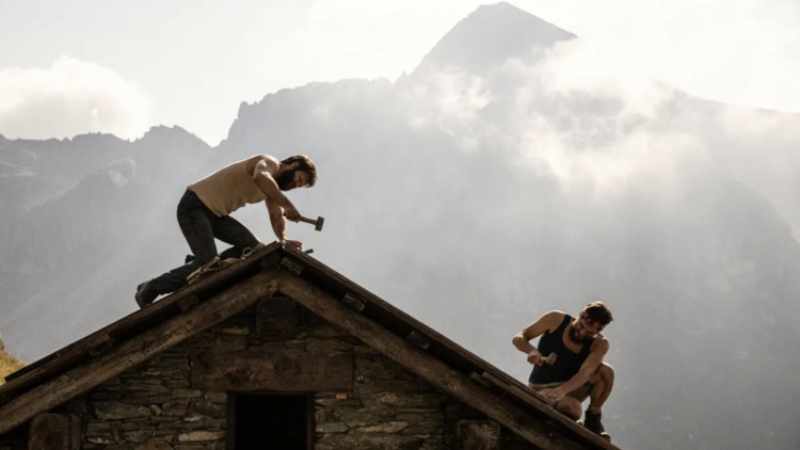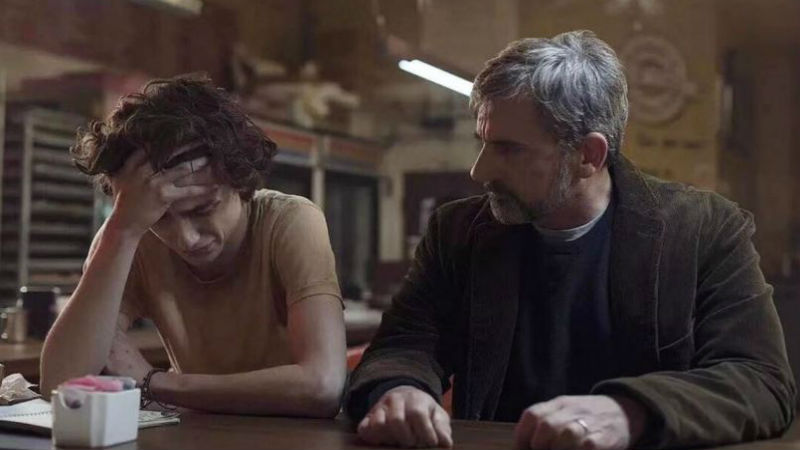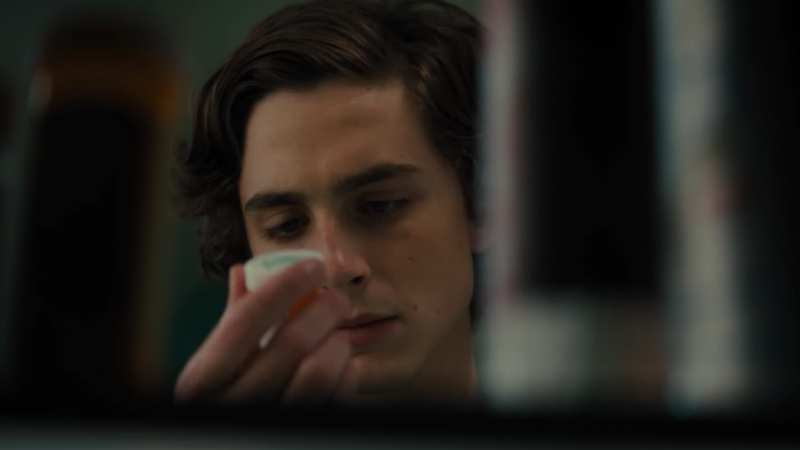It’s long been thought that men don’t talk about their feelings or the troubles in their heads; cracking open a beer around a roaring fire while sitting in solitude is a far more acceptable code of practice, but if it works, then let it be so. The Eight Mountains is the prime example of how two men, long separated by time and life’s chosen path, reunite once more, upon a mountain, ready to rebuild the ruins of a house and a connection that both parties crave.
Belgian filmmaker Felix van Groeningen, known for the heart-breaking 2019 film Beautiful Boy , is joined by his actress wife Charlotte Vandermeersch for this latest project, an adaptation of the award-winning 2016 novel of the same name by Italian author Paolo Cognetti. It’s a film that has been described as a “straight Brokeback Mountain (Ang Lee, 2005)” which kind of says a lot about it – but this is far from being just a one-dimensional retelling. It explores a simple friendship with complicated edges, a combination of two isolated souls in dire need of this concept, and how it can cultivate into something significant and extremely poignant over time.
The friendship begins with two young Italian boys called Pietro and Bruno (Lupo Barbiero and Cristiano Sassella), who spend their summers together in a secluded alpine village set in the fictional town of Grana located in the Aosta region of Northern Italy. The backdrop of the gargantuan Mont Blanc and the equally impressive Matterhorn set the scene for a playground beyond belief, and the magnificently subtle cinematography highlights this from the beginning. Separation comes as a blow to the two boys after Pietro’s parents offer Bruno the chance to live with them in Turin for a better education, much to the annoyance of Bruno’s strict father who sees the offer as an insult. Bruno is now forced into the building trade, while Pietro embarks on an unfulfilling student life, and chooses to never speak to his own father again.

In the years that have followed, Pietro (Luca Marinelli) has been working a series of odd jobs with no real objective in mind, apart from a faint dream of becoming a writer. Due to an unfortunate circumstance, the gods of fate reunite the now adult Pietro and Bruno (and we know this by the impressive beards they both sport), who are played with unrelenting assurance and charm by Luca Marinelli and Alessandro Borghi. But with both men not having any concrete plans over the summer (they’ve got no jobs to return to, that’s what it really means) they decide to renovate Pietro’s father’s old shack situated high up on the mountain – it is this simplest of plans that gives the two men something to take pride in, and to bond once again.
There’s a lot to digest with this film. The beginning is very subtle and calm; it explores the little friendships that children have at such a young age while adventure awaits around every corner. But if we are to compare the story to some of Groeningen’s previous works, then we know that this uplifting attitude towards life will not last the 147-minute runtime. It doesn’t take long to realise that The Eight Mountains is quite dark in its meaning. On the one hand, we have Bruno, a man who has lived an easy and fulfilling mountainous life who is suddenly affected by the spillover from modern society; his life of solitude has been wrecked and the mental strain it has over the course of the film is a heavy burden to cohabit with. Pietro’s character arc is the opposite in comparison though; a man that needed a summer of rediscovery to finally walk the right path. Now living in Nepal as a well-known author and using the eight mountain peaks of the region (which is the true reason for the film’s title) to awaken his spiritual self.
Although this film is about mental health and specifically, the effects of loneliness and depression, it’s also about the strength of friendship, and how supremely powerful it is through the most difficult of times. The characters are so compelling throughout, especially Bruno who has become so intertwined with nature that he becomes the embodiment of it. He’s inspiring, so much so that Pietro soon learns that his friend’s way of life is the truth and one he wishes to encompass too. “I think I was the only person that truly knew Bruno, and he was the only person that knew me too”. It is a very nuanced film with buckets of passion and mysticism. It will leave you pining for these characters to pull through and end on a happy note, and the way it represents the power and beauty of nature is almost dream-like.
The Eight Mountains is in cinemas Friday, May 12th. On various VoD platforms on Monday, August 14th.










